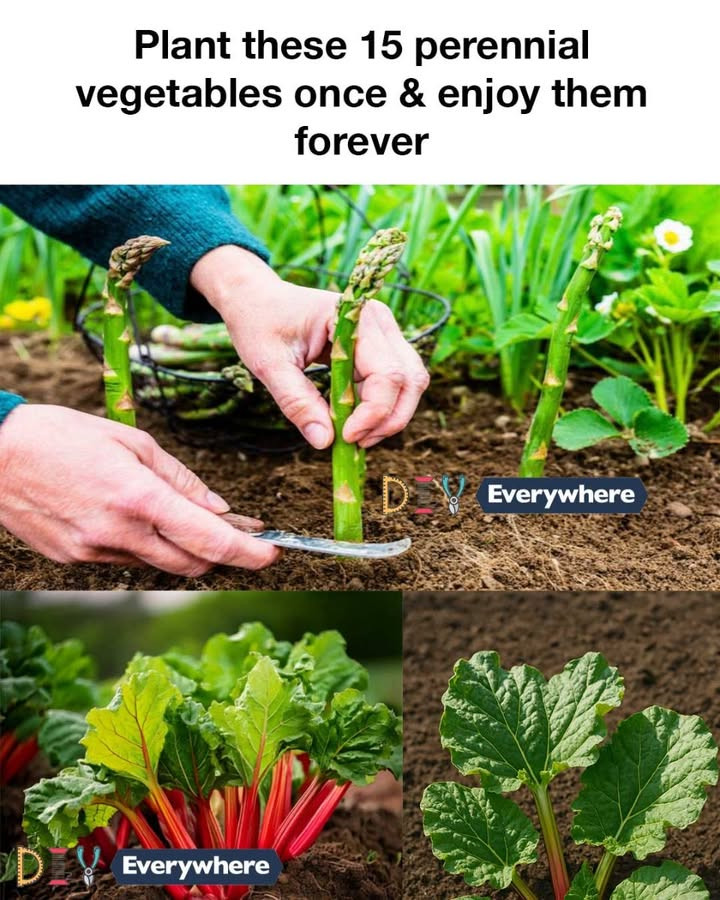Perennial vegetables are a gardener’s dream, offering a sustainable and low-maintenance approach to food production. Unlike annuals, which need to be replanted each year, perennials continue to grow and produce crops for several years. This not only saves time and effort but also enhances soil structure and biodiversity in your garden. By planting perennials, you can create a self-sustaining ecosystem that provides a continuous supply of fresh produce with minimal intervention.
Benefits of Growing Perennial Vegetables
Growing perennial vegetables comes with numerous benefits. Firstly, they reduce the need for annual soil disturbance, which helps maintain soil health and structure. Perennials also tend to have deeper root systems, allowing them to access nutrients and water more efficiently, making them more drought-resistant. Additionally, they provide habitat for beneficial insects and wildlife, contributing to a balanced garden ecosystem. Economically, they save money and time, as they do not require yearly replanting. Environmentally, they contribute to carbon sequestration, as their root systems store carbon in the soil.
Advertisement
1. Asparagus: The Long-Lived Spear
Asparagus is a well-loved perennial vegetable known for its tender spears. Once established, an asparagus bed can produce for 20 years or more. It thrives in well-drained soil and full sun. Asparagus requires patience, as it takes a few years to establish, but once it does, it rewards you with delicious spears every spring. Regular mulching and occasional fertilization will keep your asparagus bed productive.
2. Rhubarb: The Tart Perennial
Rhubarb is a hardy perennial that is prized for its tart stalks, often used in pies and desserts. It prefers cooler climates and thrives in well-drained, fertile soil. Rhubarb plants can produce for a decade or more, and they require little maintenance beyond regular watering and mulching. It’s important to note that only the stalks are edible, as the leaves contain oxalic acid and are toxic.
3. Artichoke: The Edible Flower
Artichokes are unique perennials that produce large, edible flower buds. They thrive in mild climates with well-drained soil and full sun. Artichokes can be grown as perennials in zones 7 and above, where they can produce for several years. They require regular watering and benefit from mulching to retain soil moisture. Artichokes not only provide delicious buds but also add architectural interest to the garden.
4. Sorrel: The Tangy Green
Sorrel is a perennial herb known for its tangy, lemony flavor. It is one of the first greens to appear in spring and can be harvested throughout the growing season. Sorrel prefers moist, well-drained soil and partial shade. It is a low-maintenance plant that can thrive in a variety of conditions. Sorrel is rich in vitamins A and C, making it a nutritious addition to salads and soups.
ADVERTISEMENT

